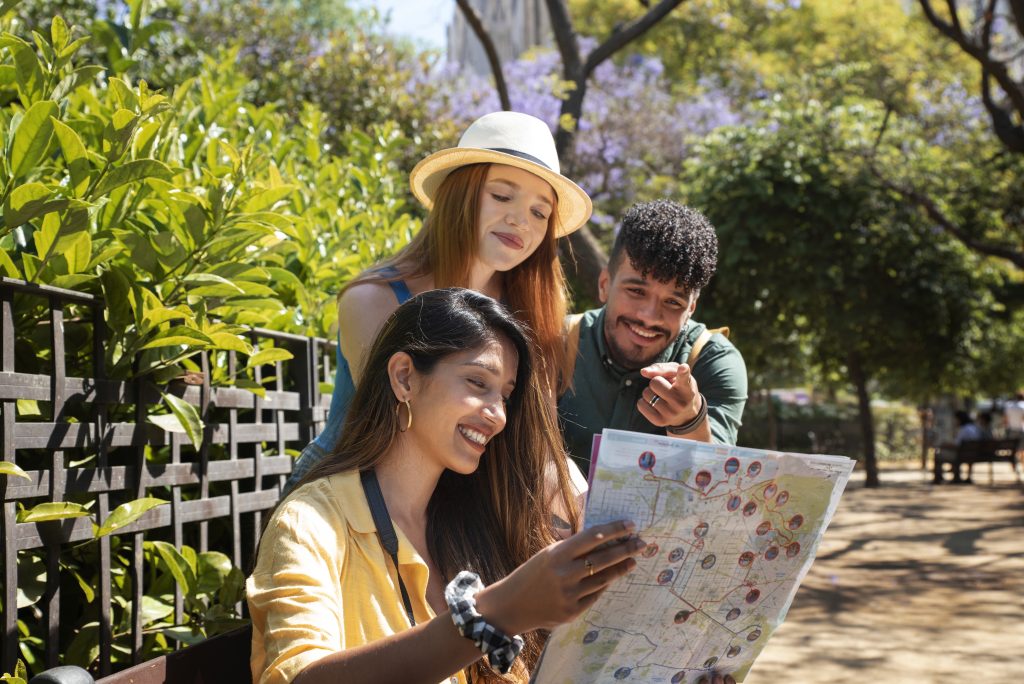Travel Experiences That Promote Cultural Awareness
Daniel Fisher August 19, 2025
Travel has always been about exploration—of landscapes, history, and human connection. In 2025, one of the most significant shifts in global travel is the rise of travel experiences that promote cultural awareness. More travelers are seeking not just sightseeing opportunities but meaningful, immersive encounters that deepen their understanding of different cultures. From community-based tourism to heritage workshops and slow travel movements, this trend reflects a growing desire to connect authentically with people and places.
This article explores why cultural awareness is becoming central to modern travel, how emerging travel models encourage cross-cultural understanding, and what travelers can do to participate responsibly.

Why Cultural Awareness Matters in Travel
In recent years, cultural awareness has become a key factor shaping travel decisions. According to a 2024 report by the World Travel & Tourism Council, more than 70% of travelers prioritize authentic cultural experiences when choosing a destination. This shift highlights a desire to move beyond surface-level tourism into meaningful engagement.
Cultural awareness in travel goes beyond learning about local customs. It involves listening, participating, and reflecting in ways that challenge assumptions and broaden perspectives. In a time when global connectivity often masks cultural nuances, these experiences help foster empathy, respect, and understanding.
Key benefits include:
- Personal growth: Exposure to different ways of life encourages self-reflection and broadens worldviews.
- Community support: Culturally aware tourism often channels money directly to local communities.
- Preservation of heritage: When travelers engage responsibly, they support the continuation of traditions that might otherwise fade.
The Rise of Immersive and Community-Based Tourism
One of the strongest trends shaping travel in 2025 is community-based tourism (CBT). Instead of visiting destinations passively, travelers now actively participate in the daily lives of local communities. Whether it’s learning weaving techniques from artisans in Peru or joining farmers in rural Japan, CBT emphasizes mutual exchange.
This form of travel not only promotes cultural awareness but also redistributes economic benefits. According to the United Nations World Tourism Organization, destinations that adopt community-based models retain more of the tourism revenue locally, directly supporting families and small businesses.
Examples include:
- Homestays in Nepal: Guests live with host families, share meals, and learn about local customs.
- Cultural villages in Africa: Programs where visitors can engage in traditional dance, cooking, and storytelling.
- Rural workshops in Europe: Opportunities to learn age-old crafts like pottery, cheese-making, or embroidery.
These experiences provide travelers with a sense of connection that typical sightseeing cannot replicate.
Slow Travel and Cultural Immersion
The slow travel movement continues to grow as travelers prioritize depth over speed. Instead of rushing to check off popular attractions, people are choosing to spend extended time in fewer destinations. This approach allows for deeper engagement with local communities, traditions, and ways of life.
Slow travel supports cultural awareness by encouraging activities like:
- Attending local festivals.
- Shopping at neighborhood markets rather than tourist shops.
- Learning the local language, even if only at a basic conversational level.
- Building ongoing relationships with community members.
Travel industry analysts note that younger generations, particularly Millennials and Gen Z, are leading this shift. These travelers often see cultural awareness as part of their identity and align their travel choices with personal values.
Culinary Travel as a Cultural Connector
Food is one of the most powerful entry points into culture. Culinary travel—experiencing a destination through its food traditions—has gained significant popularity in 2025. Travelers are increasingly seeking hands-on experiences such as cooking classes, farm-to-table experiences, and market tours.
Cultural awareness through cuisine goes beyond tasting; it involves understanding the history, ingredients, and significance of food in local traditions. For example:
- In Italy, pasta-making workshops often connect participants with family-owned businesses, passing down generational knowledge.
- In Thailand, cooking classes at local markets provide insight into the importance of herbs, spices, and seasonal produce.
- In Mexico, learning about indigenous foods like corn and cacao reveals cultural stories tied to agriculture and ritual.
By engaging with food in this way, travelers not only satisfy their taste buds but also gain a deeper respect for the role cuisine plays in identity and community.
Technology’s Role in Promoting Cultural Awareness
While technology is often associated with detachment from real experiences, it is also being leveraged to promote cultural awareness in travel. Virtual reality (VR), augmented reality (AR), and digital storytelling platforms are enabling travelers to engage with cultures even before arrival.
Museums and cultural sites are adopting AR experiences that provide context in multiple languages. Social media platforms highlight local creators, offering authentic perspectives often overlooked in mainstream travel media. Meanwhile, travel apps are developing features that educate users on etiquette and customs to avoid unintentional disrespect.
For instance, AR-guided tours of heritage sites in Greece allow travelers to see reconstructions of ancient structures alongside the ruins, adding historical and cultural context. Similarly, indigenous-led digital projects share stories of heritage and sustainability practices, ensuring representation comes directly from the community.
Responsible Travel and Ethical Considerations
As interest in cultural awareness grows, so does the responsibility to ensure these experiences are respectful and ethical. Not every cultural interaction is beneficial—poorly managed tourism can lead to exploitation or cultural appropriation.
To travel responsibly, consider the following guidelines:
- Choose locally owned accommodations and guides. Supporting local businesses ensures that tourism benefits communities directly.
- Participate respectfully in traditions. Always ask permission before taking photos, and follow local customs.
- Avoid staged cultural performances. Look for experiences where communities actively choose to share their heritage.
- Educate yourself before arrival. Learning about etiquette and cultural norms helps minimize misunderstandings.
- Be mindful of environmental impact. Many cultural traditions are tied to the land; protecting it also safeguards heritage.
Responsible cultural travel involves reciprocity—recognizing that while travelers gain insight, they also carry a duty to respect and support the communities they visit.
Popular Destinations Promoting Cultural Awareness in 2025
Certain destinations are becoming recognized as leaders in culturally aware travel. Some examples include:
- Bhutan: With its “Gross National Happiness” philosophy, Bhutan encourages sustainable tourism rooted in cultural preservation.
- New Zealand: Indigenous Māori experiences, led by community members, are integrated into the broader tourism industry.
- Morocco: Artisan cooperatives are attracting travelers interested in learning traditional weaving, ceramics, and metalwork.
- Colombia: Afro-Colombian and Indigenous communities are offering immersive tours highlighting music, storytelling, and ecological knowledge.
These destinations are setting a standard by blending cultural authenticity with responsible tourism practices.
Challenges in Promoting Cultural Awareness
Despite its benefits, promoting cultural awareness in travel comes with challenges. Some communities face overtourism, where the influx of travelers disrupts daily life. Others risk cultural dilution, where traditions are altered to suit tourist expectations.
Another concern is accessibility. Cultural awareness travel experiences often require time and resources, making them less available to budget travelers. This raises questions about inclusivity in the industry.
To address these challenges, organizations and policymakers are working to develop guidelines that prioritize community control and equitable access. Certifications for responsible travel providers and educational campaigns for tourists are emerging as tools to protect cultural integrity.
Looking Ahead: The Future of Cultural Awareness in Travel
The growing emphasis on cultural awareness is not a passing trend—it reflects a long-term shift in how people view travel. As global issues like climate change, migration, and social inequality continue to shape societies, travelers increasingly recognize the importance of mutual understanding.
In the future, we can expect:
- Greater integration of cultural awareness into mainstream travel packages.
- Expansion of digital platforms connecting travelers directly with local hosts.
- Stronger policies ensuring that communities retain control over how their culture is shared.
By 2030, cultural awareness may become a standard expectation in travel, much like sustainability has today. The more people engage meaningfully with other cultures, the more likely travel will serve as a bridge toward empathy and cooperation worldwide.
Conclusion
Travel is evolving from a pursuit of leisure into a pathway for learning and connection. Travel experiences that promote cultural awareness are at the forefront of this shift, offering opportunities for personal growth, cultural preservation, and community empowerment.
As travelers in 2025 and beyond, choosing experiences that emphasize respect and authenticity ensures that journeys enrich not only our own lives but also the communities we encounter. By engaging responsibly, we contribute to a more interconnected world—one that values understanding over assumption, and empathy over exploitation.
References
- Envisionit. (2024). Destination marketing 2025 and the power of authentic cultural experiences. Available at: https://envisionitagency.com (Accessed: 19 August 2025).
- Euromonitor International. (2024). Traveller segmentation: The expanding role of cultural explorers in shaping global tourism. Available at: https://www.euromonitor.com (Accessed: 19 August 2025).
- Conde Nast Traveler. (2024). How to use the UN tourism village database to find off-the-beaten-path destinations. Available at: https://www.cntraveler.com (Accessed: 19 August 2025).







